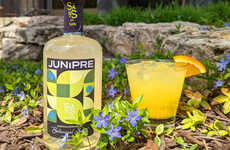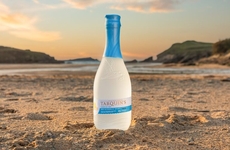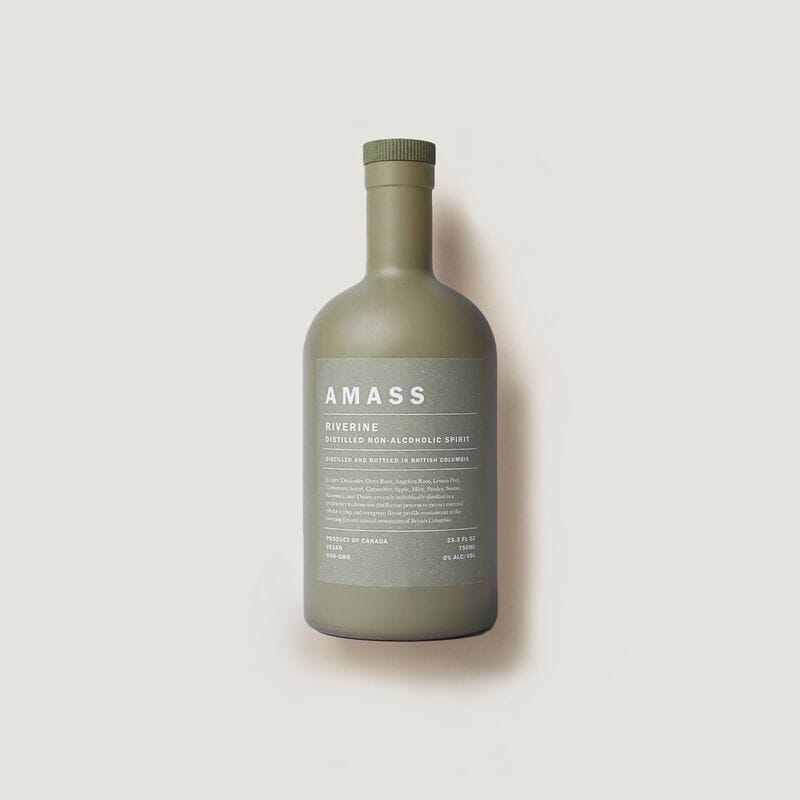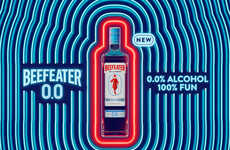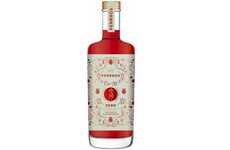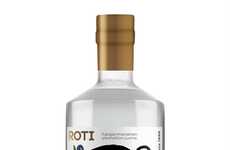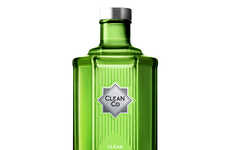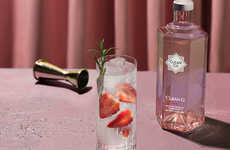
AMASS' Riverine Boasts a Versatile Gin-Like Flavor
Riley von Niessen — January 15, 2021 — Lifestyle
References: amass
When it comes to mocktails, it can sometimes be difficult to find proper substitutes for popular spirits, but the Riverine Non-Alcoholic Spirit from AMASS successfully translates the juniper notes that are expected from a quality gin, and even spruces up the flavor with a few welcome additions.
This includes notes of coriander, apple, sumac, and sorrel, which are rounded out with deeper notes of parsley and rosemary to complement the juniper. Due to its unique flavor, the non-alcoholic spirit can be enjoyed on its own over ice, added to a cocktail, or just served with a bit of tonic water, along with some cucumber and apple for garnish.
AMASS' Riverine is vegan, free of added sugar and sweeteners, non-GMO, and has no artificial colors or flavors.
Image Credit: AMASS
This includes notes of coriander, apple, sumac, and sorrel, which are rounded out with deeper notes of parsley and rosemary to complement the juniper. Due to its unique flavor, the non-alcoholic spirit can be enjoyed on its own over ice, added to a cocktail, or just served with a bit of tonic water, along with some cucumber and apple for garnish.
AMASS' Riverine is vegan, free of added sugar and sweeteners, non-GMO, and has no artificial colors or flavors.
Image Credit: AMASS
Trend Themes
1. Non-alcoholic Spirits - The rising interest in sober living creates opportunities for innovation in the production of non-alcoholic alternatives for popular spirits.
2. Plant-based Beverages - The rise of the plant-based movement presents an opportunity to experiment with natural and sustainable ingredients to produce unique and flavorful beverages.
3. Versatile Mocktails - The growing demand for non-alcoholic spirits spurs opportunities to create complex and unique flavors that are versatile enough to be enjoyed on their own or mixed into cocktails.
Industry Implications
1. Beverage - The beverage industry can explore the creation of more non-alcoholic options that cater to a wider demographic of consumers, especially those who prioritize health and wellness.
2. Hospitality - Restaurants, bars, and hotels can create new non-alcoholic cocktails or mocktails using innovative and unique flavors, offering them to consumers seeking non-alcoholic options for various reasons.
3. Natural and Organic Products - The natural and organic products industry can develop and promote more plant-based and organic non-alcoholic alternatives for popular alcoholic beverages.
4
Score
Popularity
Activity
Freshness


